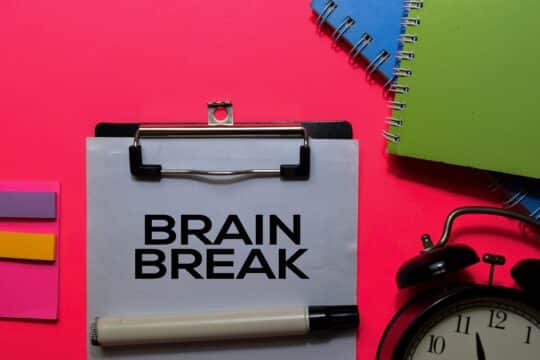Deeper learning competencies are critical areas of learning that are essential for today’s students to be successful in work and life. These competencies ensure that students will be able to thrive in challenging and ever-changing environments. Deeper learning competencies also assist students in developing responsibility and accountability — two essential characteristics necessary to achieve positive outcomes.
Self-directed learning is a deeper learning competency that students must develop to be invested in one’s education, to self-reflect, and to advocate for what they need. We want students to take the initiative to guide their own learning by discussing what they need to succeed as well as to be able use tangible examples from their learning to determine and monitor their learning goals. One way to do this is through student-led conferences.
What are Student-Led Conferences?
Student agency can be further developed when students lead their own parent-teacher conferences. Student-led conferences are meetings that are led by the student from start to finish. The student explains to their parents and teachers what they are achieving, what they are struggling with, and what they need to succeed.
Student-led conferences can be held in grades K-12; however, these meetings are most impactful with students in grades 6-12. Students in middle school and high school have advanced metacognition skills students that are necessary to reflect, process, and synthesize the data and information that should be considered during the conference.
During this time, the student will display other deeper learning competencies such as effective communication skills and an academic mindset. In doing so, a student’s confidence can be enhanced when preparing for this meeting. Students should be provided with a specific meeting structure and options of how to share their work and progress. They should be instructed on what they should and should not do during the meeting.
Most students share a portfolio of work to provide examples of their achievements and struggles during this meeting. This informational session provides the necessary information for parents and teachers to further support the student’s academic goals while understanding the student’s point of view of their learning. The entire process of a student-led conference can also promote student engagement.
Student-led conferences are most successful as a powerful learning and communication tool when instituted as a school-wide practice. When all students are directed to develop a portfolio and synthesize its contents in a student-led session, students clearly understand the expectations of what he or she should be completing and achieving.
What are the Benefits of Student-Led Conferences?
There are various benefits to establishing student-led conferences. First, this type of school-parent communication style helps the students’ support system clearly understand how best to support the student at home and at school. Parents can fully understand, with validation from the teachers, that the student’s status is attributed to student effort or deficits.
Also, this type of meeting format promotes collaboration between home and school. When the student must explain what has happened by way of academic success or lack thereof, it lessens the opportunity to assign blame to parents or teachers if the student is not succeeding.
Next, placing the onus of responsibility on the student to explain his or her progress helps to develop the responsibility and accountability necessary for the student to improve or to sustain academic success. The student must reflect on what is needed to acquire academic success or discuss what he or she needs or must do in order to improve. In addition, if the student can process how he or she is achieving, the student is more likely to develop goals and use an ongoing monitoring system to track improvement.
An essential benefit of student-led conferences is the practical skill of goal development that the student must take part in to start the process. When goals are created by the student, he or she will likely take a personal interest in achieving and monitoring these goals. If goals are set by parents or teachers, learning will not be self-directed or student-centered.
When both teachers and parents understand what the student needs to succeed, student success can be assured. To institute student-led conferences, educators should be mindful of what systems and structures are in place to support students through the process of student-led conferences. If such systems do not exist, this would be the starting point of implementing this practice. Educators also need to explore how families will participate in the conference process. In addition, the logistical challenges of preparing for and scheduling student-led conferences must take place with fellow teachers and administrators.




